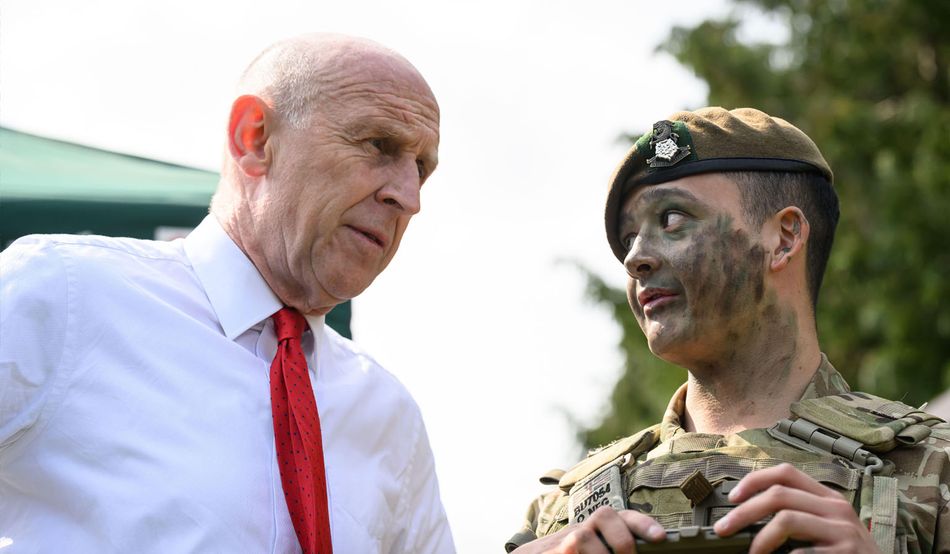For all the dramatic “war readiness” rhetoric around this week’s strategic defence review, little has changed in the UK’s actual defence posture.
Our security strategy is still to expect—or at least hope—that, despite Trump and Putin, Nato continues to keep the Americans in and the Russians out; and that the price tag for this Nato strategy is roughly half what we spent during most of the Cold War, as a share of national income (2.5 to 3 per cent against 5 to 6 per cent).
There are two key underlying assumptions here. First, notwithstanding Ukraine and Putin’s other invasions of non-Nato neighbours such as Georgia, Russia is too weak to risk a direct conflict with Nato. And second, so far as China is concerned, the role of policeman falls entirely to the US and its Asian allies, with no more of Boris Johnson’s pretence of a substantive UK “tilt to the Asia-Pacific” at the expense of defending the UK and Europe.
Nor is there to be much change in the physical components of our defence. No substantial increase to the size of the armed forces is proposed, although the British Army now has fewer full-timers than the 84,000 American troops still based in Europe. And our single biggest defence investment by far will continue to be a nuclear deterrent which, although proclaimed to be independent, is in practice substantially dependent on the US.
There is talk of new submarines among other pieces of expensive kit, which will no doubt be scaled back since there isn’t the money for much of it. The importance of drones and cyber-ops is emphasised, which is clearly changing the way everyone now does defence. But I detected only one strategic imperative in the review which did not reflect what was basically happening anyway, namely a commitment to significantly increasing the UK’s own production of armaments with a new defence industrial strategy, including six new munitions factories. The aim is clearly to buy far less from the US, in recognition of the danger of Uncle Sam going truly rogue, although this last point isn’t stated explicitly.
To understand how far this is basically a status quo strategy, consider two widely discussed scenarios. First, what if Trump were to withdraw entirely from Europe? In that event, the whole eastern border of the existing Nato alliance, which consists mostly of small states with small defence forces, becomes far more vulnerable to Russia. Just this week Germany’s defence chief, General Carsten Breuer, warned that Russia might be ready to attack a Nato country by 2029. “This is what the analysts are assessing,” he said.
If either or both of these scenarios were accepted as the basis for policy then the European members of Nato would need, immediately, to base significant new forces and armaments across the Baltics and eastern Europe. The UK would need to be at the forefront of this forward strategy, together with France and Germany, which would mean a massive increase—maybe a doubling—in the size of the army.
Does the fact that these two scenarios aren’t even discussed in the strategic defence review reflect sensible realism or dangerous complacency? This is the critical issue.
To my mind the answer crucially depends on how the Ukraine war develops. If it ends in a Ukraine victory, or if it continues or freezes as a stalemate, with Trump remaining at least neutral if not pro-Ukrainian, then it is realistic to downplay alarmism about the security of eastern Europe vis-à-vis Russia. However, if Ukraine falls entirely to Putin, and/or the US breaks up Nato as a functioning military alliance, then General Breuer’s warning is vindicated. Eastern Europe would become immediately vulnerable to Russian attack and another defence review would be needed to chart a far more radical way forward.
This raises one huge, obvious imperative. Ukraine cannot be allowed to be conquered. At present the UK is spending £3bn a year to support Zelensky. That support should be massively increased this year, and the rest of Europe should step up too and thereby also increase pressure on Trump not to defect to Putin.
Sustaining Ukraine with greatly enhanced support is by far the best UK insurance policy against having to find tens of billions more for defence after a Ukrainian rout. That’s all this defence review really needed to say.













